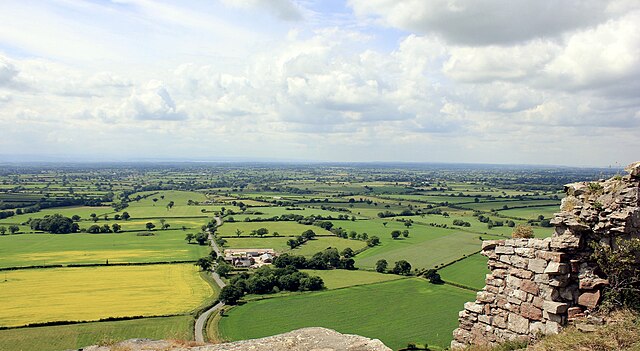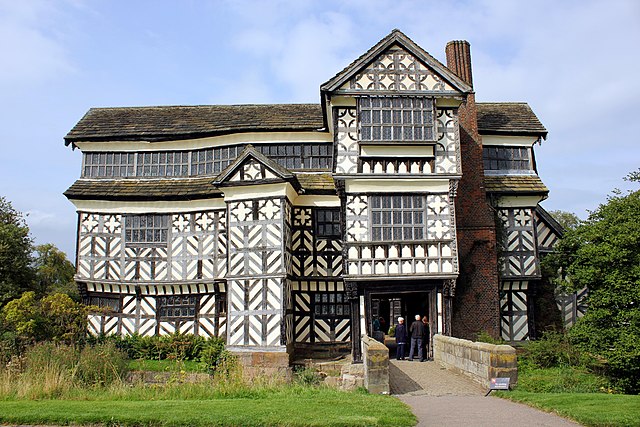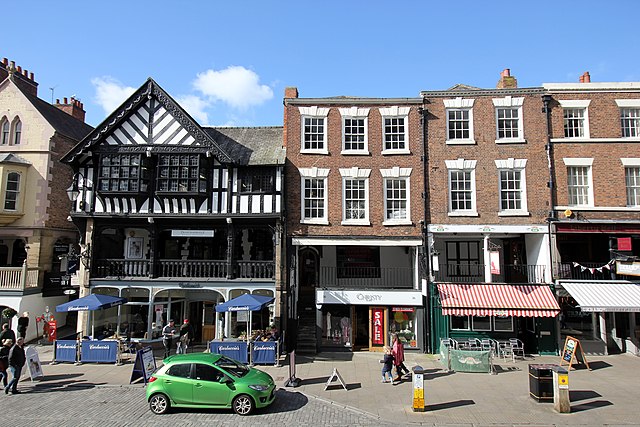Halton is a unitary authority district with borough status in Cheshire, North West England. It was created in 1974 as a district of the non-metropolitan county of Cheshire, and became a unitary authority area on 1 April 1998 under Halton Borough Council. Since 2014, it has been a member of the Liverpool City Region Combined Authority. The borough consists of the towns of Runcorn and Widnes and the civil parishes of Daresbury, Hale, Halebank, Moore, Preston Brook, and Sandymoor. The district borders Merseyside, the Borough of Warrington and Cheshire West and Chester.
Aerial view of the Silver Jubilee Bridge and the two towns of Runcorn (left) and Widnes (right)
Halton Castle overlooking the Mersey Gateway Bridge
St Mary's Church, Widnes
Runcorn Town Hall
Cheshire is a ceremonial county in North West England. It is bordered by Merseyside to the north-west, Greater Manchester to the north-east, Derbyshire to the east, Staffordshire to the south-east, and Shropshire to the south; to the west it is bordered by the Welsh counties of Flintshire and Wrexham, and has a short coastline on the Dee Estuary. Warrington is the largest settlement, and the city of Chester is the county town.
Image: The view north west from Beeston Castle geograph.org.uk 4547395 (edited, cropped)
Image: Little Moreton Hall geograph.org.uk 3625859
The Cheshire Plain from the Mid-Cheshire Ridge.
Chester








